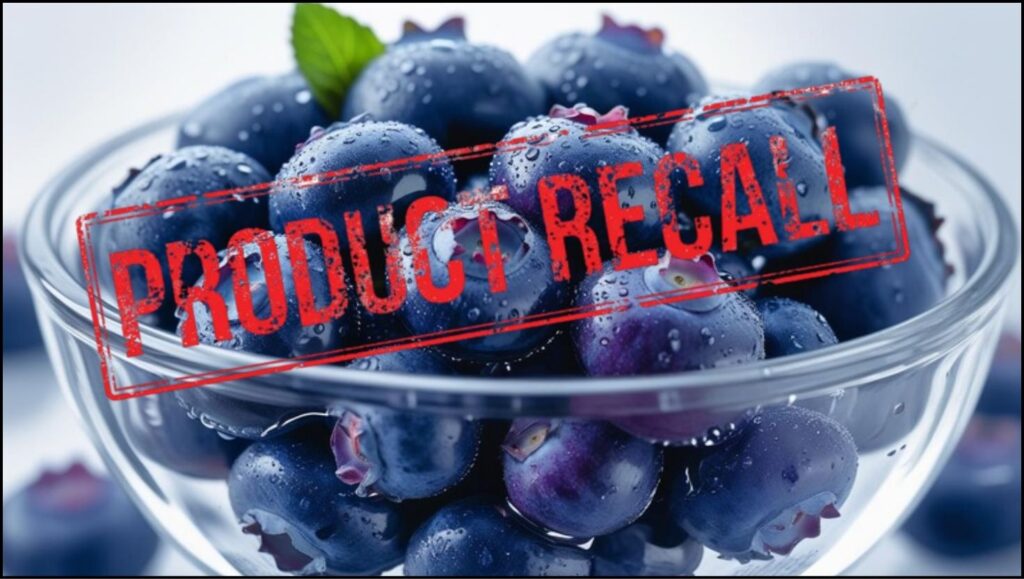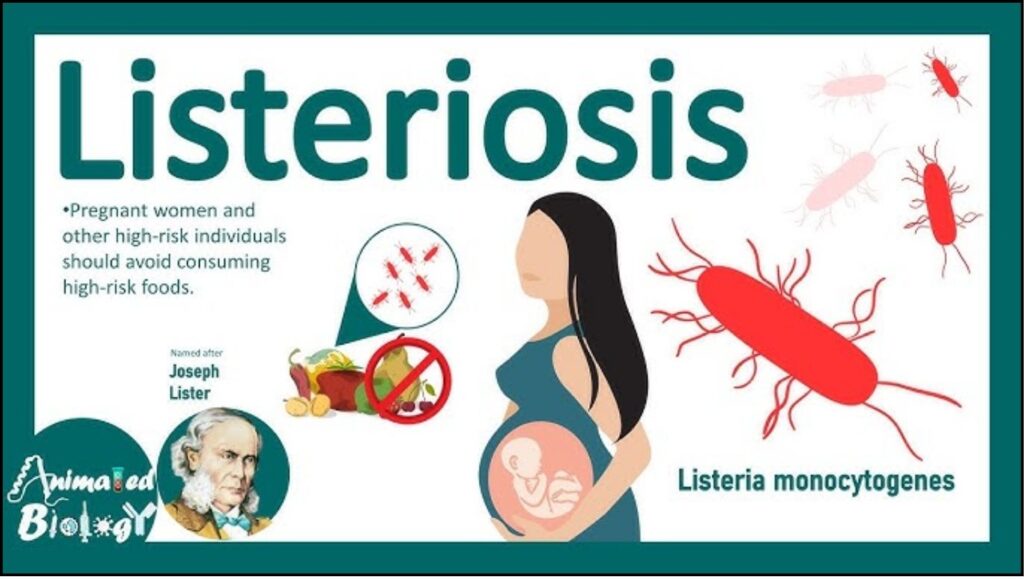Federal health officials have elevated an urgent blueberry recall to their highest alert level due to potential contamination with Listeria monocytogenes, a dangerous bacterium that can cause severe illness and death, particularly in vulnerable populations. The recall, initiated by Alma Pak International LLC, involves 400 cases of 30-pound boxes of bulk organic blueberries distributed to a customer in North Carolina, prompting a public health warning from the U.S. Food and Drug Administration (FDA).

Key Recall Information
| Key Fact | Detail |
| Product Recalled | Organic Blueberries, 30-pound bulk boxes |
| Company | Alma Pak International LLC |
| Affected Lot Numbers | 13325 G1060; 13325 G1096 |
| Primary Risk | Contamination with Listeria monocytogenes |
| Recall Classification | Class I: “a situation in which there is a reasonable probability that the use of or exposure to a violative product will cause serious adverse health consequences or death.” |
Details of the Urgent Blueberry Recall
The voluntary recall was first initiated by Georgia-based Alma Pak International LLC on June 9, 2025, after routine product testing revealed the presence of the pathogen. On July 1, 2025, the FDA classified the recall as Class I, its most serious designation. This classification underscores the potential for severe health outcomes.
The recall is specific to 400 boxes of bulk organic blueberries, each weighing 30 pounds. Consumers and businesses are advised to check for the following lot numbers: 13325 G1060 and 13325 G1096. While the initial shipment was sent to a single customer in North Carolina, the possibility of further distribution has prompted a wider public alert. As of this report, no illnesses have been officially linked to the consumption of this product, according to the FDA.
Understanding the Health Risk: What is Listeria?
Listeria monocytogenes is a hardy bacterium that can cause a serious infection known as listeriosis. Unlike many other foodborne pathogens, Listeria can survive and multiply in the cold temperatures of a refrigerator, making it a persistent food safety risk in ready-to-eat foods and improperly handled produce.
According to the Centers for Disease Control and Prevention (CDC), an estimated 1,600 people get listeriosis each year in the United States, and about 260 die from the illness. It is the third-leading cause of death from a foodborne illness in the country.

Symptoms of Listeriosis
Symptoms can vary depending on the person and the severity of the infection. Healthy individuals may experience short-term, flu-like symptoms such as:
- Fever
- Muscle aches
- Nausea
- Vomiting
- Diarrhea
However, if the infection spreads to the nervous system (invasive listeriosis), it can lead to a stiff neck, confusion, loss of balance, and convulsions. The incubation period can be long, with symptoms sometimes appearing up to two months after consuming the contaminated food.
Populations at High Risk
The threat of this Listeria risk is not uniform across the population. The World Health Organization (WHO) and the CDC identify several groups who are especially susceptible to severe outcomes:
- Pregnant Women: They are about 10 times more likely than other healthy adults to get a Listeria infection. An infection during pregnancy can lead to miscarriage, stillbirth, premature delivery, or life-threatening infection of the newborn.
- Adults Aged 65 or Older: A majority of listeriosis cases occur in this age group, as the immune system’s ability to fight off germs diminishes with age.
- Individuals with Weakened Immune Systems: This includes people with cancer, diabetes, kidney disease, or HIV/AIDS, as well as those taking immunosuppressant medications like steroids.
What Consumers and Businesses Should Do
Officials urge anyone who may have purchased bulk organic blueberries to first check the packaging for the specified lot numbers.
- Do Not Consume: Do not eat, sell, or serve the recalled blueberries.
- Check Your Freezer: Because blueberries are often frozen for later use, check any stored products. Listeria can survive freezing temperatures.
- Dispose or Return: The FDA advises consumers to either return the product to the place of purchase for a full refund or dispose of it in a sealed container in the trash so that other people or animals cannot access it.
- Sanitize Surfaces: Listeria can spread to other foods and surfaces. The FDA recommends thoroughly cleaning and sanitizing any refrigerator shelves, countertops, and utensils that may have come into contact with the recalled product. A solution of one tablespoon of unscented liquid chlorine bleach to one gallon of water is effective for sanitation.
- Monitor Your Health: Anyone who believes they may have consumed the affected product should monitor themselves for symptoms. If symptoms develop, especially if you are in a high-risk group, contact a healthcare provider immediately and inform them about the possible Listeria exposure.
Food Safety and Contamination Context
This product recall highlights ongoing challenges in the global food supply chain. Listeria monocytogenes is found naturally in soil and water and can contaminate produce at any point from the farm to the processing facility and beyond. While cooking typically kills the bacteria, blueberries are often consumed raw, increasing the risk if contamination has occurred.
An analysis of food recalls between 2002 and 2023 published in a peer-reviewed journal found that biological contaminants like Listeria and Salmonella accounted for the vast majority of high-risk (Class I) recalls. This underscores the critical importance of robust food safety protocols, including routine testing and strict hygiene standards in processing facilities. For Alma Pak International LLC, this is not their first recall; a 2019 FDA notice shows the company previously recalled frozen blackberries due to potential Norovirus contamination.
The FDA continues to monitor the situation and will provide updates as necessary. Food safety experts emphasize that recalls, while disruptive, are a sign that the regulatory system is working to identify and remove potentially hazardous products from the market before a widespread outbreak occurs.
Read More
Over 200,000 Pounds of Canned Beef Stew Recalled Nationwide Due to Wood Contamination
